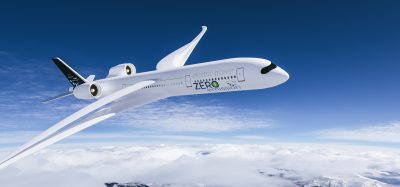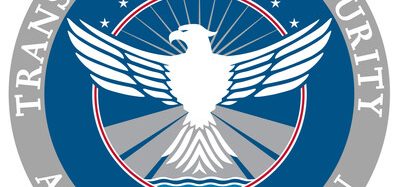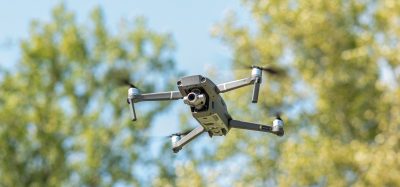The biggest threat to aviation is the one least expected
- Like
- Digg
- Del
- Tumblr
- VKontakte
- Buffer
- Love This
- Odnoklassniki
- Meneame
- Blogger
- Amazon
- Yahoo Mail
- Gmail
- AOL
- Newsvine
- HackerNews
- Evernote
- MySpace
- Mail.ru
- Viadeo
- Line
- Comments
- Yummly
- SMS
- Viber
- Telegram
- Subscribe
- Skype
- Facebook Messenger
- Kakao
- LiveJournal
- Yammer
- Edgar
- Fintel
- Mix
- Instapaper
- Copy Link
Posted: 18 May 2020 | Ilias Maragakis - Fraport Greece | No comments yet
International Airport Review spoke to Ilias Maragakis, COO at Fraport Greece, to hear of the present and predicted threats that are impacting aviation.


As these unprecedented times have emphasised, aviation cannot prepare for all threats that have a potential to leave a mark on the industry. However, some can be predicted and considered. By doing so sufficiently, disruption can be minimised.
The biggest threat in aviation security is not to take action when immediate action is needed
Ilias Maragakis, COO at Fraport Greece, believes multi-layered security measures and collaboration – including with non-aviation organisations – can significantly help protect the industry.
What do you see to be the biggest threat to aviation security?
The biggest threat is the one we least expect. As security threats continue to morph, we have to remain vigilant, addressing known threats as well as new and undefined ones. To this end, we will continue to implement multi-layered security measures; discouraging, minimising and eliminating potential security threats.
The biggest threat in aviation security is not to take action when immediate action is needed.
Ilias Maragakis will speak at Airport IT & Security 2020 in October; detailing his advice for airports and associations on how best to safeguard the industry for the future.
What is a considerable threat to Fraport Greece’s airports?
For Fraport Greece the biggest concern is to accommodate the highly-seasonal traffic at our 14 airports while security measures and passenger travel processes continue to evolve due to new requirements, including those stemming from COVID-19.
Changes in travel habits and social behaviour will have an impact on security processes, but it is difficult to determine within 2020 which of these measures (or new needs) will be with us in the long term and which will be negated in the years to come. In any case, we have a continuous improvement team looking towards harnessing the best performance out of existing technologies, but also looking into the future for needs and solutions.
In order to safeguard our airports we should not spend our efforts on trying to make security something it is not
Considering the extent to which aviation has been impacted by COVID-19 – how would you suggest airports develop their crisis management procedures?
The crisis of COVID-19 has shown that coordination is key to resolving any crisis. Lack of coordination will not only delay crisis resolution, but potentially create a crisis in itself.
One of the advantages we had in Fraport Greece, as a relatively young airport operator in the country, was that we started anew without the burden of legacy procedures. From the start of drafting our procedures we engaged with stakeholders outside the ‘known aviation circle’, with agencies such as civil protection or local authorities and policy makers.
Airport IT & Security 2020 – in Munich – will bring together over 100 experts in the airport IT and security sectors. With a multitude of high-quality speakers, including Ilias Maragakis, don’t miss out on this unique experience.
What emerging technology do you think will be instrumental in developing aviation security?
I believe it will be an emerging fusion of existing technologies rather than a technology in itself. Just to give you an example, I strongly believe in a future self-check process in security. In this future, airport security moves more towards a self-check process, whereby a passenger can check himself through security in a similar way he can now do with his boarding pass and to drop off luggage. Just like with the self-service boarding pass and baggage check-in process, so too we will move into a procedure through which the passenger will divest, pass through the metal detector and pass their items through x-ray on their own, remotely supervised by CCTV and AI. An array of technologies enabling this automated process exist already, for example, AI, image and movement recognition, gesture control and passenger identification. If the associated technologies become cost effective there are several benefits, especially in the post-COVID-19 era where social contact should be minimum and remote security checks preferable.
Collaboration and knowledge-sharing are key for the security sector to improve. What do you think airport leaders should be more willing to discuss and share?
Although the security regulations are common worldwide, and especially through regions like Europe are the same, there is a lot of scope in collaboration between airports. The way compliance is achieved or solutions are implemented may differ. If we want to improve our security processes through trial and experimentation, we have to be willing to learn, implementing these lessons in our day-to-day operations. This requires both sharing experience but also being willing to adopt other organisations’ lessons. One of the things we have learned operating 14 airports in Greece is that solutions can come from anywhere, we should not be dismissive of smaller airports or organisations.
Sponsors, exhibitors and speakers for Airport IT & Security 2020 are being regularly updated. Browse the latest agenda here and book your ticket now.
In your opinion, how does aviation security need to evolve to safeguard airports for the future?
Airport security and passenger screening will never be an enjoyable process, no matter how much ‘fun’ we try to make it. A person you don’t know searches your personal belongings and searches your body to see if you are carrying prohibited items: How fun can this be? In order to safeguard our airports we should not spend our efforts on trying to make security something it is not. We should minimise its footprint during the passenger journey, by keeping it at the level required by the authorities, focusing on effectiveness rather than raw numbers.
Biography
Ilias Maragakis joined Fraport Greece at the start of the project in 2016 and was one of the first members of the senior management team. As Head of Safety and Performance, he oversaw the implementation of the highest international standards, procedures and best practices at all 14 regional airports. Maragakis has more than 20 years’ aviation experience, having worked at the European Aviation Safety Agency (EASA) for nine and before that as a consultant for the expansion of regional airports in the UK. He has an MSc in Airport Planning and Management.

















